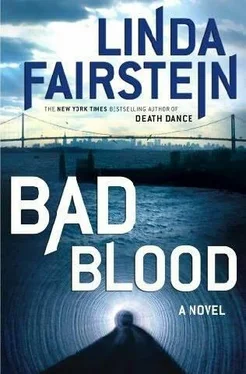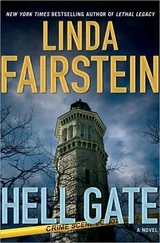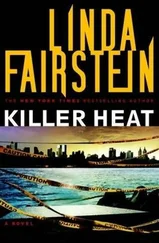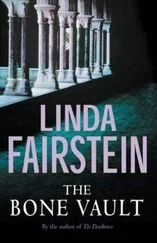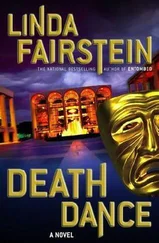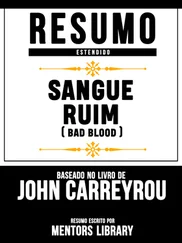“Well, then, I’ll move on to something about which Mr. Howell, in his opening-and in his cross-examination of my first witness-made a big fuss. Something he’s put at issue in this case. That’s the fact that Brendan Quillian has no criminal history, no known violent behavior prior to this arrest. In Dr. Enloe’s study, in thirty percent of the murders the offender had exhibited no previous physical violence.”
Judge Gertz rested his chin in his left hand and started to take notes with his right.
“Women are actually murdered in different ways than men,” I went on. “Male victims of homicides are most often shot or stabbed to death. They are killed on the street or in the workplace or in any kind of public space, while women are attacked inside the privacy of their homes. When women are killed by a partner, it’s usually in a very personal manner-hands on, if you will-exhibiting far more force than necessary to cause death, and far more rage. They are beaten and burned and thrown out of windows,” I said, glancing at the defendant. “And they are most frequently victims of strangulation.”
Quillian took advantage of the jury’s absence to smirk at me. His good eye cut through me like a laser.
“In addition, Your Honor, Enloe’s study identifies two times in intimate relationships when women are at greatest risk of victimization. These findings have been confirmed, in fact, by all of the data available nationally.”
“Let’s have them,” Gertz said.
“The leading cause of death for pregnant women in America is homicide, Your Honor-which is a fact not generally known-”
Lem Howell stepped up to the table and slammed his hand against it. “That has nothing to do with this case, Judge. Nothing at all to do with my client or Amanda Quillian.”
The door to the holding pen opened and a court officer waved to Artie Tramm, summoning him out of the courtroom.
“Calm down, Mr. Howell. Ms. Cooper, you’re not suggesting that the deceased was pregnant, are you?”
“No, sir. Not at all. The autopsy report is clear on that.”
“But it’s quite a claim you’re stating. Makes us sound like a third-world country. The numbers back you up?”
“Yes, Your Honor. That’s my point. Again, I’m trying to demonstrate for you that the latest studies in this field have had some astounding results. Certainly, if this court isn’t aware of the facts, I would hardly expect a jury to know them. Most people assume that pregnancy is an event to celebrate, while the maternal mortality studies prove that the stressors added to the intimate relationship put the woman at far greater risk during those nine months if she is in an unstable situation.”
“You said there were two bad times, Ms. Cooper.” Gertz pointed his finger at me. “What’s the other one?”
“Separation, Your Honor.”
Gertz held up his hand-palm outward-to stop another outburst from Howell. “But the Quillians were living together.”
“Amanda Quillian had told the defendant the marriage was over, Judge. Dr. Enloe’s study proved that seventy-five percent of the women who’d been murdered by their partners or exes had tried to terminate-or had announced their intention to terminate-the relationship.”
It was clear from the expression on Fred Gertz’s face he was hearing this information for the first time. Had the facts been so well-known-say, such as Madison Avenue is one block due east of Fifth-that the court could have taken judicial notice of them, I’d have no need to introduce them through an expert. But the study was new enough, and shocking enough, to warrant my effort to do it this way.
“When did you plan on calling Dr. Enloe?” the judge asked. “How far into your case?”
“Probably next week, when I’ve completed the forensics.”
“Judge, you’re going to have to take that testimony subject to connection,” Howell said, gesturing with his gold pen. “If Ms. Cooper fails to provide any evidence that links my client to the murder, then the prejudicial nature of this woman’s testimony would far outweigh any probative value.”
Howell could tell that Gertz was beginning to lean in my favor. His best hope was to force me to save the expert until the end of my case, hoping-or knowing-that Marley Dionne, my snitch, might be lost to me.
“I don’t mind holding Dr. Enloe until that link is established,” I said. I wasn’t about to let Lem Howell dictate my order of proof, but I was confident that leaving the jurors with Enloe as their last witness could be a powerful way to arm them for their deliberations.
“I’ll reserve decision on your application, Ms. Cooper. At the moment, I’m inclined to take the doctor’s testimony, so have her on standby once you’ve proved the elements of your case.”
“Yes, Your Honor.”
“Get Artie back in here,” Gertz said to one of the two officers standing behind the prisoner.
It was unorthodox to leave a homicide defendant in the care of one guard. And Lem would normally have been the first to remark on how different the rules were for a white businessman who had no violent criminal history. The short, stocky woman in the crisp white shirt and tight navy serge pants that bulged at the hips with her holster and gun pointed to her young colleague and sent him to find Artie.
The judge stood up and flipped his papers impatiently. “You have any witnesses here, Alex, if we get our panel in by the afternoon?”
“Yes, sir. I’m ready to go.”
“Just to be clear, Judge,” Lem said, “we have the day off tomorrow, isn’t that right?”
“Yes. We promised that to Ms. Cooper. She’s moving in on my turf, Lem,” Gertz said, signaling to the reporter that we had gone off-the-record. “Is this legit, Alexandra? This is going to be legal?”
“Chapter 207, Section 39, of the Massachusetts General Law. One of my dearest friends is getting married, at my home on Martha’s Vineyard, and the governor has granted her request to allow me to perform the wedding. It’s a one-shot deal-your job is perfectly safe.”
We were talking about the ceremony I had written for the event when Artie Tramm came back into the courtroom. He was twisting the end of his mustache with one hand and motioning to Lem and me to stay back.
Artie went directly up the steps to the bench and pulled on Gertz’s arm to turn him away from us while he whispered something to the judge.
Gertz remained standing and glanced from Lem to me, shaking his head from side to side. “Ms. Cooper, Mr. Howell. Would you approach the bench?”
“You want this on the record?” the stenographer asked.
“No,” Gertz said, “not yet. Artie, you want to have the crew take Mr. Quillian back inside for a few minutes?”
Lem and I walked toward Gertz to see what had him looking so sober, while the court officers walked the defendant back to the holding pen.
“Artie, tell them what you heard,” the judge said. “I don’t know how to deal with this.”
“It’s his brother. It’s his brother that’s one of the dead.”
“Whose brother?” I asked.
“The defendant’s brother, Ms. Cooper.”
“I didn’t know he had one, Your Honor. Was he-”
“You know about this, Lem? How do you want me to handle this?” the judge asked.
“I’m in the dark, too,” Lem said. “Exactly who is his brother and how did he die? I certainly don’t intend for Brendan to hear this news in a public courtroom.”
“Artie says there’s a rumor-”
“It’s not a rumor anymore, Judge,” Artie said. “The mayor’s gonna have another press conference at one p.m. to announce it. Duke. Duke Quillian. It’s your client’s brother, Mr. Howell.”
“What about him?” Howell asked, taking a few steps toward the door that led to the pens. He looked flustered and truly surprised.
Читать дальше
